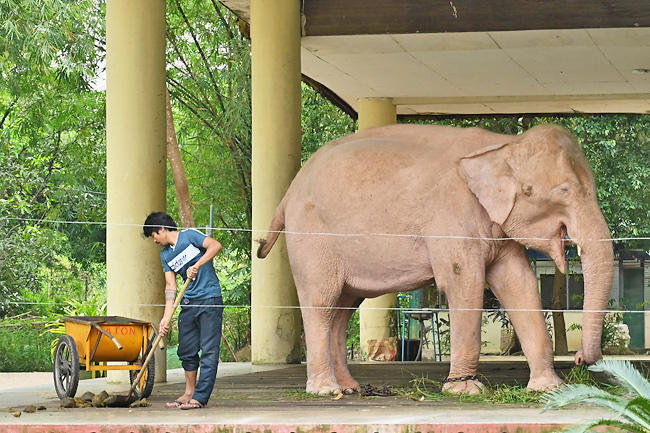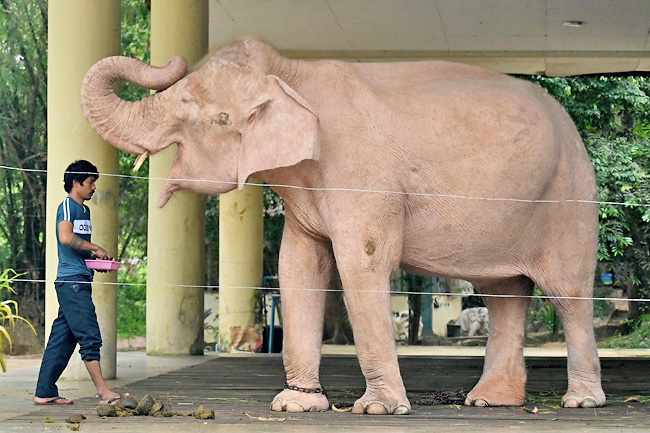NAYPYIDAW, MYANMAR (AFP) – Though it is a pariah on the world stage and battling fierce domestic opposition to its rule, Myanmar’s junta has found grounds for optimism – the birth of a rare albino elephant.
Since seizing power, the junta has crushed democracy protests, jailed ousted leader Aung San Suu Kyi and been accused of committing war crimes in its bid to quell dissent.
But the birth of the elephant – more milky-grey than white – in western Rahkine state last year is being portrayed by junta-controlled media as fortuitous.
Ancient rulers regarded white elephants as extremely auspicious, and their appearance was taken as a symbol of righteous political power.
The pale pachyderm will feature on a special postage stamp released this week to mark the 75th anniversary of Myanmar’s independence from Britain, state media said on Tuesday.
A set of gold commemorative coins bearing the animal’s image is also already being cast for the occasion, another report said.


The tusker tot’s highest-profile engagement so far was a meeting with junta chief Min Aung Hlaing in October, when the senior general bestowed it a name at a televised ceremony.
Rattha Nandaka comes from the ancient Pali words for “country” and “happiness”.
To bolster the credentials of its newfound good omen, state media has insisted the beast has an almost impeccable pedigree.
According to the experts quoted, it possesses seven of the eight standard characteristics for an albino elephant, including “pearl-coloured eyes” and a “plantain branch-shaped back”.
In Myanmar, where astrological charts are drawn at birth and fortune-tellers consulted for both daily and political decisions – the craze for white elephants goes back hundreds of years.
Traditional chronicles tell of kings in Thailand, Laos and Myanmar – then known as Burma – warring to capture the beasts from rivals.
The ruinous cost of keeping them in appropriately lavish style gave rise to the modern expression in which a “white elephant” is a useless, if beautiful, possession.
One creature inherited by a 19th Century Burmese king was waited on by 30 servants and dressed in a “fine red cloth plentifully studded” with rubies and diamonds, according to a visiting British official.
The king, who had usurped his brother, “would gladly hail the capture of a real white elephant in his own day as an assent from the Powers of Nature to his own legitimate royalty”, the envoy added.
But the fortunes of the creatures are tied up with the ruler under whom they were captured.
Two elephants, once feted by a former junta, are now confined to a damp, out-of-the-way compound in commercial hub Yangon where they receive few visitors. Rattha Nandaka will spend its days in a special compound for white elephants in military-built capital Naypyidaw.
But with swathes of the country still ravaged by fighting and the junta widely reviled, his birth has been met with public scepticism and scorn. “It seems like they forgot to put suncream on,” one social media user wrote about the baby elephant’s more grey than albino appearance. “Now it’s black.”
Black or white, another wrote, the baby was “now a prisoner”.






